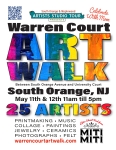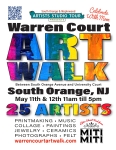The tyranny of the judiciary
Aha, did not realize the Fifth had not ruled against Mckesson, thanks.
Mostly joking about Jan. 6 (not usually a funny subject, but...) -- thinking it'd be a silver lining if the reasoning in holding Mr. Mckesson liable could be applied to ****.
DaveSchmidt said:
mjc said:
Sounds like bad news for people who want to legitimately protest in the Fifth Circuit area.
Does it intersect at all with trial(s) of Jan. 6 leader(s)?
To clarify, the Fifth Circuit panel did not rule that the plaintiff had proved that Mckesson met the standard for negligence in organizing the protest and is therefore liable for the officer’s injuries. What it did was decline to throw out the case, allowing it to proceed at the trial court level.
“Our limited holding guarantees only that Doe may proceed to discovery on his negligence claim. It does not guarantee that he will prevail on that claim.”
https://www.ca5.uscourts.gov/opinions/pub/17/17-30864-CV4.pdf
SCOTUS took one of several possible actions on this case. The arguably chose the worst action, if one cares about the right to protest . As a result, the right to protest is still very much in jeopardy in 3 states, controlled by a 5th circuit decision that is clearly unconstitutional.
While I'm not hyper ventilating about it, this is worrisome. And another example of the subject of this thread.
drummerboy said:
While I'm not hyper ventilating about it, this is worrisome. And another example of the subject of this thread.
I read the Fifth Circuit ruling. I posted a summary of the action and a link, in case anyone else was interested in what the court wrote. I made no comment on your opinion.
DaveSchmidt said:
drummerboy said:
While I'm not hyper ventilating about it, this is worrisome. And another example of the subject of this thread.
I read the Fifth Circuit ruling. I posted a summary of the action and a link, in case anyone else was interested in what the court wrote. I made no comment on your opinion.
yeah, but I knew what you were thinking
drummerboy said:
yeah, but I knew what you were thinking
I was thinking you probably hadn’t looked at the primary source.
it wasn't necessary to read the decision to know the essentials of what happened.
Featured Events
-
Stephen Whitty Presents - Hometown Movie Stars: The Celebrated Actors Of CHS
May 6, 2024 at 7:00pm
For Sale
-
REVO luggage $100
More info
Garage Sales
-
House Contents Sale Sale Date: May 5, 2024
More info

























To clarify, the Fifth Circuit panel did not rule that the plaintiff had proved that Mckesson met the standard for negligence in organizing the protest and is therefore liable for the officer’s injuries. What it did was decline to throw out the case, allowing it to proceed at the trial court level.
“Our limited holding guarantees only that Doe may proceed to discovery on his negligence claim. It does not guarantee that he will prevail on that claim.”
https://www.ca5.uscourts.gov/opinions/pub/17/17-30864-CV4.pdf